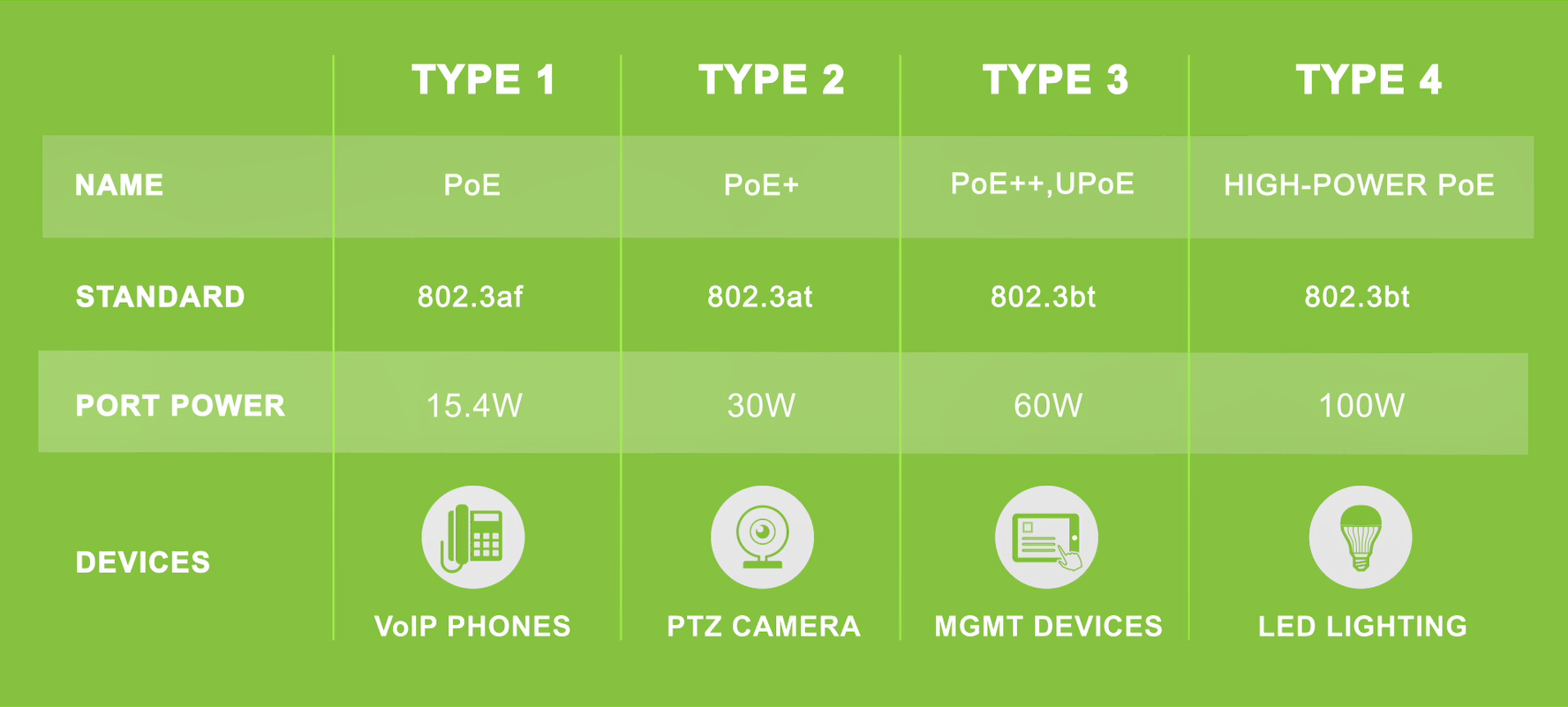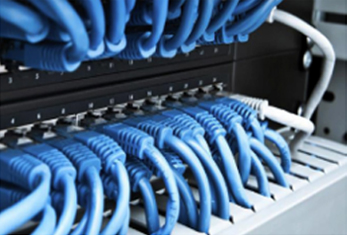
PoE Trends and Development
Without any changes to the existing Ethernet cabling architecture, PoE technology enables a twist pair
copper cable to provide both data transmission and DC power to devices, such as wireless access points, VoIP
phones, network cameras, etc., which help realize the maximum network convergence of lighting system, voice
exchange system, sensor system, ventilation control system, building automation control system and
structured cabling system.
PoE standard has evolved from IEEE 802.3af to IEEE 802.3bt. This standard introduces new PoE Type 4 and raises the power transmitted from 15.4W to maximum 100W, which could meet the demand for high-power applications like LED lights, or even charging laptop batteries.
PoE standard has evolved from IEEE 802.3af to IEEE 802.3bt. This standard introduces new PoE Type 4 and raises the power transmitted from 15.4W to maximum 100W, which could meet the demand for high-power applications like LED lights, or even charging laptop batteries.

Challenges
When 4PPoE is applied, the temperature of the cabling will rise due to heat
generation in the copper conductors which results in an increase of transmission loss and aging of outer
jacketing. The remote powering can also cause the potential for electrical arcing damage to connector
contacts, which can lead to power and efficiency losses, performance degradation and the potential for
damaged connecting hardware. How to deploy a reliable cabling infrastructure for the remote power support is
the important issue we are facing now.
Features & Benefits
-

Safety With Low Voltage Supplies
-

Flexible and Scalable Designs
-

Energy Saving
-

Quick Installation
VERICOM PoE Cabling Solutions
Data Center and Structured Cabling infrastructure are the premise of
building an information platform, and act as the nervous system of a hospital network. VERICOM, as a
professional provider of network communication and network energy, can offer the following solutions
to support hospital facilities and campuses.
- Product Solutions
- Related Resources
-

VERICOM PoE Cabling Solutions
Download
